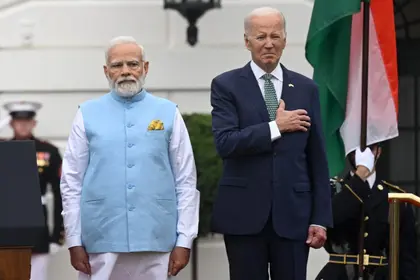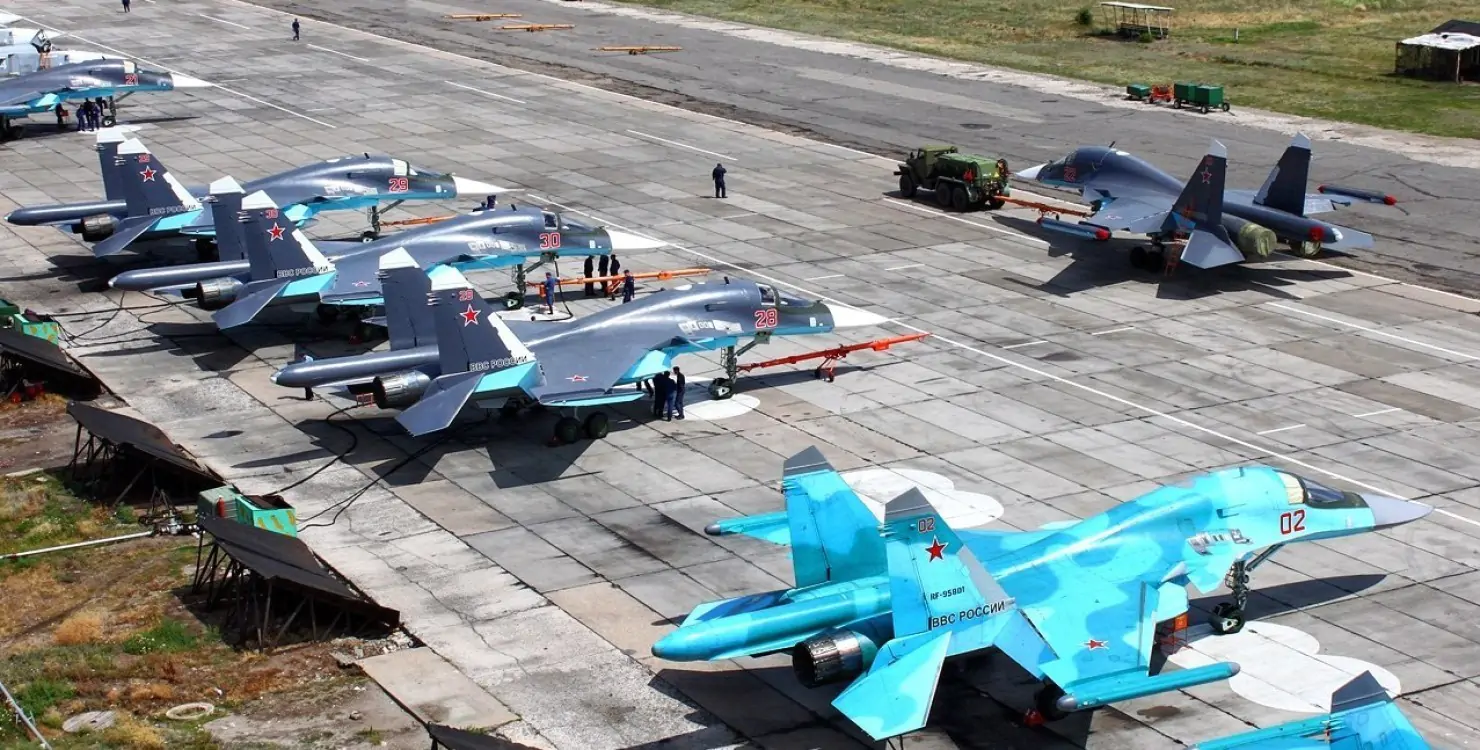US President Joe Biden and Indian Prime Minister Narendra Modi said Thursday that the two democracies' partnership would define the next century, as Washington eyes a counterweight to China and brushes off allegations of growing authoritarianism in New Delhi.
The two nations reached major deals on engines for fighter jets, semiconductor investment and space cooperation as Biden rolled out the red carpet to Modi for only the third state visit of his presidency.
JOIN US ON TELEGRAM
Follow our coverage of the war on the @Kyivpost_official.
With thousands of Indian-Americans chanting his name on the White House's South Lawn, Modi, sporting a flowing white kurta with a sky-blue jacket, walked a red carpet to a gun salute.
"I have long believed that the relationship between the US and India will be one of the most defining relationships of the 21st century," Biden said.
Modi, India's most powerful prime minister in decades, said that the visit brought a "new direction and new energy" to the partnership with the United States.
Later, addressing both chambers of Congress, Modi clearly alluded to US concerns on China as he backed a "free, open and inclusive Indo-Pacific," a favorite phrase of the United States.
"The dark clouds of coercion and confrontation are casting their shadow in the Indo-Pacific," Modi said.
- Defending record on rights -
Indian-American supporters broke protocol to chant Modi's name during the speech but at least six lawmakers from Biden's Democratic Party boycotted the talk, pointing to Modi's human rights record.

Russia to Scrap Missile Moratorium as US Deployments Expand
Biden addressed the concerns lightly, calling religious pluralism a "core principle" for both India and the United States and saying that democratic values "face challenges around the world and in each of our countries."
"The whole world has a stake in our success," Biden said. "Maintaining our democracies makes us appealing partners."
Modi, who a decade earlier was the state leader of Gujarat and banned from entering the United States over religious violence, defended his record in a rare open press exchange for the usually scripted prime minister.
Criticizing those who would question India's democratic character, Modi said, "regardless of caste, creed, religion, gender, there's absolutely no space for discrimination."
Since taking office in 2014, India has passed a controversial law on citizenship, abrogated the special status of Muslim-majority Kashmir and seen increasing violence against minorities, with a US State Department report pointing to inflammatory rhetoric from members of Modi's Bharatiya Janata Party.
Modi has also faced criticism for police raids on media outlets and the expulsion from parliament of the opposition leader.
Former president Barack Obama, in an interview with CNN, said that Biden should raise concerns privately with Modi, warning that without protection of minorities, "there is a strong possibility at some point that India starts pulling apart."
- Vegetarian state dinner -
Biden offered full honors to Modi including a gala dinner, with First Lady Jill Biden tapping a celebrated Californian plant-based chef to cook for the strictly vegetarian prime minister.
"Two great nations, two great friends, and two great powers," Biden said in a toast to Modi before both men, who don't drink alcohol, clinked glasses of ginger ale.
Among the nearly 400 guests invited to the evening's candlelit festivities were notable Indian-American business leaders, including Google chief Sundar Pichai and Microsoft CEO Satya Nadella.
Earlier in the day, in an agreement hailed by Modi as landmark, the United States signed off on a technology transfer for engines as India begins producing homegrown fighter jets.
General Electric will have the green light to produce its F414 engines jointly with state-owned Hindustan Aeronautics.
A US official said India would also buy MQ-9B SeaGuardian high-precision armed drones. In 2019, India broke precedent with an airstrike in Pakistani territory against an alleged extremist camp.
Washington hopes a tighter defense relationship will help wean India off Russia, New Delhi's primary military supplier.
In a joint statement, Modi joined Biden in backing the "territorial integrity" of Ukraine following its invasion by Moscow.
The Biden administration has largely given a pass to India for refusing to join Western sanctions on Russia and instead buying its oil at a discount, seeing a broader alignment with India on the challenge of China and the threat of radical Islamism.
In another agreement, US chip giant Micron will invest $800 million in a semiconductor assembly and testing plant in India, which is expected to reach $2.75 billion after contributions from New Delhi.
The United States is looking to stop the flow of high-end chips to China, fearing that the communist state will dominate the next generation of technology, although Micron also recently announced a $600 million investment in China.
The United States and India also agreed as well to end six disputes before the World Trade Organization and expand cooperation in space, with India joining a US-led initiative to put a human back on the Moon by 2025.
You can also highlight the text and press Ctrl + Enter






